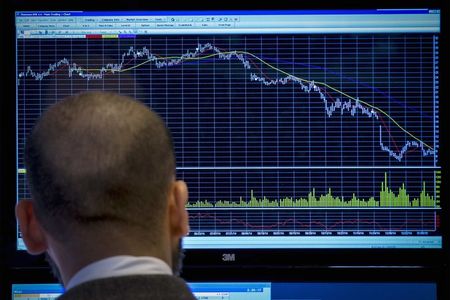
Stocks extended their rebound from Q2 lows last week amid mostly quiet news flow and mixed earnings, despite economic data that continues pointing to stagflation.
This topic of stagflation has gained traction among investors since the hotter-than-expected March CPI report, as it represents “one of the worst possible investing environments for stocks and bond holders,” market commentary Sevens Report said in a recent note.
But, most economists, including Federal Reserve Chair Jerome Powell, dismiss the idea of stagflation.
In the April FOMC press conference, Powell stated he didn’t understand stagflation concerns, seeing neither the “stag” (stalled growth) nor the “flation” (high inflation).
Comparing this period to the 1970s, when gross domestic product (GDP) growth was flat or negative and CPI exceeded 10%, Powell is correct—”there is no stagflation,” noted analysts from Sevens Report Research.
“However, it’s somewhat dismissive to say that just because things aren’t as bad as they were in the 1970s that any talk of stagflation isn’t warranted,” analysts said.
“Point being, stagflation doesn’t have to be as bad as it was in the 1970s, but for a stock market that’s trading above 21X earnings, the truth is that even a small bout of stagflation could result in a 10%-20% decline in stocks (because a stagflation multiple is somewhere below 18X, or more than 600 points lower from here),” they continued.
“So, with all due respect to Powell and other economists, it is worth taking a look to see if stagflation risks are rising and, if so, what it could mean for stocks.”
remove ads
.
Analysts noted that none of the current metrics suggest economic growth has stalled, supporting Fed Chair Powell’s view that there is no hard evidence of economic stagnation. Still, the data indicates that economic momentum is slowing, which is a precursor to potential stagnation.
While economic growth remains positive, the slowing momentum suggests a higher risk of stagnation than seen in the past year and a half.
Regarding inflation, Sevens Report analysts highlight that, in an absolute sense, high inflation (“flation”) is not present.
CPI has risen to 3.5% year-over-year, and the University of Michigan Inflation Expectations have increased to 3.5% for one year and 3.1% for five years. Moreover, price indices in the ISM Manufacturing and Services PMIs have also climbed to multi-month highs. However, when compared to 1970s-style inflation or pandemic-era inflation, current inflation levels do not reach those extremes.
For investors, this means that while inflation isn’t at levels suggesting historical stagflation, it has ceased declining and appears to be rebounding, analysts from Sevens Report emphasized.
Although no one expects inflation to surge back to 7% or 8%, the uptick in inflation metrics poses a problem for a market priced at over 21x earnings and reliant on lower yields to justify valuations.
“Bottom line, inflation has declined and isn’t at 1970’s levels, but it’s undeniable that the decline in inflation has stopped and the longer inflation stays higher, the more it will become entrenched in the economy—and that means higher inflation risks,” analysts said.
“In sum, stagflation is not here, especially if we think about it in 1970’s terms.
remove ads
.
However, with slowing growth and buoyant prices, the data appears to be moving in a stagflationary direction, they cautioned.
With the S&P 500 trading above 21 times earnings, a correction doesn’t require 1970s-style stagflation. Instead, “we just need the data to keep going in the current direction because the stagflationary drift in the data is absolutely a worry for anyone owning stocks and bonds, and that’s a critical difference to be aware of (and we are),” analysts concluded.












